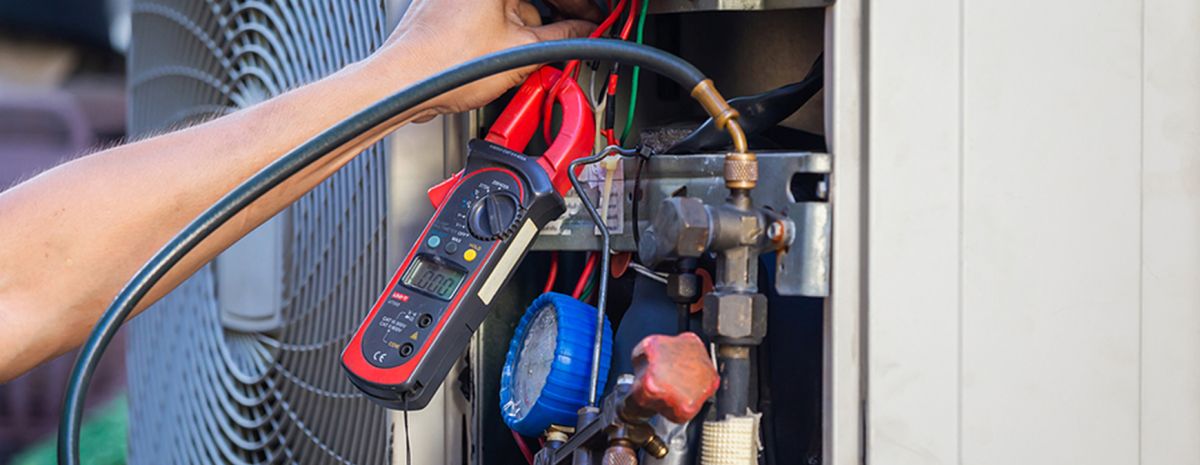RSI is a Great Training Option for Everyone
Learn more about how we can prepare you to advance your career.
If you recently graduated from skilled trades training, you might be wondering…
What HVAC tools do I need to invest in to get started?
See a list of what many in the industry consider 9 must-have HVAC tools below.1-7
Do New HVAC Techs Supply Their Own Tools?
Yes, sometimes HVAC technicians supply their own tools. It’s a common practice in the HVAC industry for companies to require technicians to purchase their own equipment. The exact policies regarding the allotment of tools can vary from one HVAC company to the next.1
For example, some owners offer bonuses to help technicians cover the cost of tools. Others provide larger and more advanced pieces of equipment, while techs are expected to purchase more basic hand tools.1
Get Started on the Path to a New Career
Fill out our form to learn how we can help you change your life.
To help you make the smoothest transition from HVAC training to the field, here are what many consider to be 9 must-have HVAC tools for new techs.
9 Essential HVAC Tools
You’ll find these 9 HVAC tools organized into 3 categories for easier identification: basic hand tools, safety equipment and advanced equipment.
Basic Hand Tools
1. Hammer
A hammer is one of the most fundamental tools of the trade. Anytime you need to generate some force or leverage, this can be a go-to piece of equipment.2
Carpenter-style hammers can prove more useful than standard designs due to their slimmer profile and smaller head. The advantage of using a smaller hammer is having a lightweight tool belt or tool bag.2 It’s also useful to find one with an ergonomic handle for greater control.3
2. Screwdrivers
Many of the HVAC systems you operate on may have screws. In order to access certain areas or remove individual parts, new techs will need a quality set of screwdrivers in a variety of different sizes. Make sure the set contains both Phillips and flathead screwdrivers because HVAC units may have different types of screws.4
3. Wrenches
There are a number of specialized wrenches that deserve to be considered must-have HVAC tools for new techs.5
You may be dealing with a lot of plumbing and natural gas connections, so pipe wrenches can be helpful.2
In addition, adjustable crescent wrenches can allow you to handle a variety of nuts and bolts.5
Having a range of wrench sizes can make it easier to handle a variety of jobs.2,5
Learn about other fundamental tools of the trade.
Safety Equipment
4. Goggles
Safety is an important consideration for new HVAC techs. Anytime you’re out in the field, it’s critical to wear protective eyewear.3
Safety goggles help to prevent smaller pieces of dust, dirt and other debris from getting into your eyes. You can even find specially designed goggles with built-in magnification that make it easier to see finer details on more sensitive projects.3
5. Multimeter
A multimeter can be a must-have HVAC tool, especially when it comes to electrical safety for HVAC technicians.3
Never touch electrical wiring without first checking to see if the current is live. A multimeter can determine the presence of electricity and even the level of voltage.3
6. Flashlight/Headlight
Whether you’re dealing with minimal daylight or you’re working in a tight indoor space, a powerful flashlight can be a must-have HVAC tool.5
It’s advisable to find one that’s easy to handle with one hand but still durable enough to last through a long day on a single charge. Headlamps are also a great source of light that can keep both of your hands free.5
Advanced Equipment
7. Manifold Gauge Set
A manifold gauge set can be one of the most commonly used HVAC tools for new technicians. 2
The standard manifold gauge set comes with dual pressure valves for high and low pressure. Depending on the model, results can be displayed digitally or with analog meters.6
You can use this essential tool for testing, charging, vacuuming or recovery.6
8. Reciprocating Saw
It’s not uncommon for HVAC technicians to hit a steady stream of obstacles when on a service call. A reciprocating saw, often referred to as a Sawzall, is a versatile tool that can help you cut through plywood, wooden beams, drywall, PVC piping, sheet metal and more.2
9. Recovery Machine
Technicians can use a recovery machine to quickly and easily remove refrigerant from an HVAC system before starting a repair or maintenance.7
These tools act like a vacuum to suck refrigerant out of a unit’s filtration system. In addition to offering a convenient and effective way of removing refrigerant, recovery machines are also required by the EPA when doing HVAC repairs for environmental reasons.8
Learn the Trade and Get the Tools in an HVAC Training Program
The Refrigeration School can prepare students to enter the HVAC industry in more than one way.
Students who buy a gear package for RSI’s HVAC training program can graduate with some of the must-have HVAC tools discussed in the list above.9 This could make the transition from training to fieldwork a little smoother.
To get more details about RSI’s HVAC and Refrigeration courses and gear package, call 866-820-0823.
Once you’ve gotten a handle on HVAC tools, learn about some tips for HVAC service calls.
Additional Sources
1https://www.achrnews.com/articles/143758-contractors-discuss-how-to-handle-tool-policies-with-technicians
2https://insights.workwave.com/industry/hvac/best-hvac-tools/
3https://www.joblogic.com/us/essential-hvac-tools/
4https://healthyhandyman.com/essential-hvac-tools-list/
5https://www.servicetitan.com/blog/best-hvac-tools
6https://www.zoro.com/manifold-gauge-sets/c/6282/
7https://www.foodsharkmarfa.com/best-refrigerant-recovery-machine/
8https://www.epa.gov/sites/production/files/2015-07/documents/phasing_out_hcfc_refrigerants_to_protect_the_ozone_layer.pdf
9https://www.rsi.edu/wp-content/uploads/rsi-school-catalog.pdf




